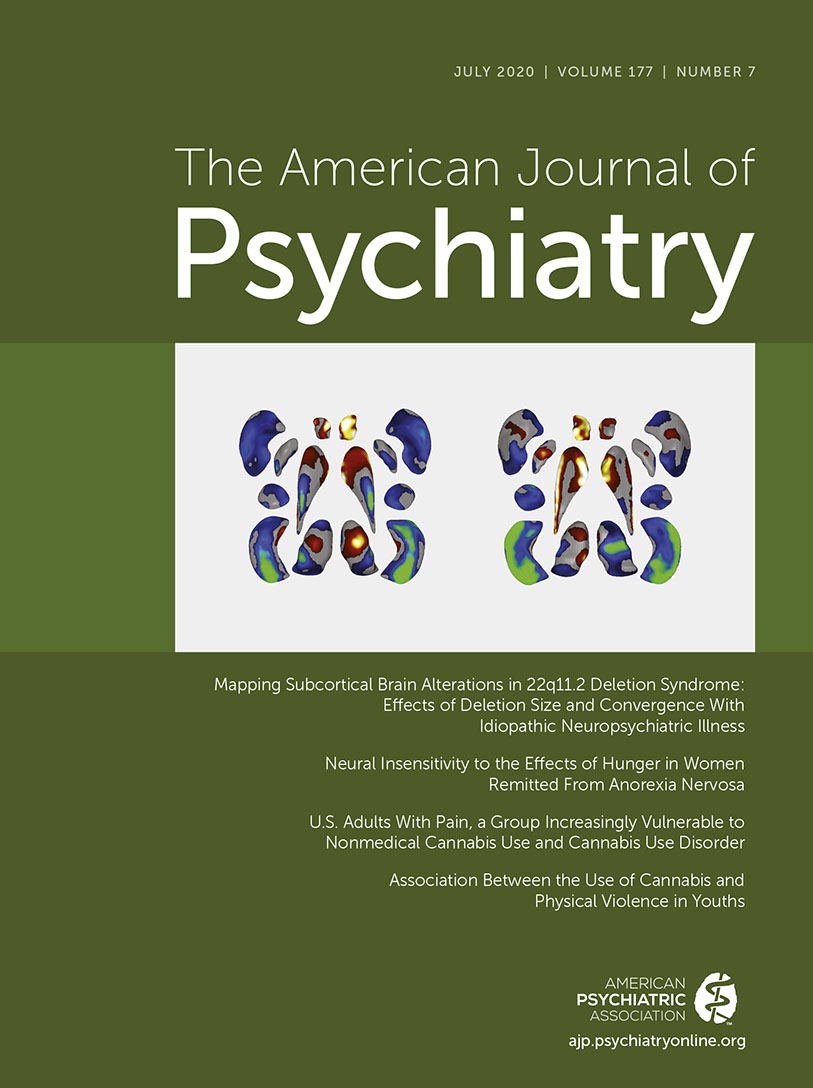The Mental Health Effects of COVID-19 on Health Care Providers in China
To the Editor: The COVID-19 disease has resulted in an unprecedented shutdown in many cities and regions in China (1). In addition to concerns raised about the transmission of the severe acute respiratory syndrome coronavirus 2 (SARS-CoV-2), health care providers are also subject to isolation in and deployment to areas where the infection is epidemic. Reports of deaths of health care providers due to SARS-CoV-2 not only reflect the seriousness of the infection but also add to greater distress and burden, disproportionately on health care providers. Taken together, the health, well-being, and functioning of health care providers in China providing assistance to individuals affected by SARS-CoV-2 are at risk. Herein, we sought to evaluate measures of depression, anxiety, insomnia, and distress among health care providers providing care for individuals affected by SARS-CoV-2.
This study was approved by the institutional review board at Renmin Hospital of Wuhan University (WDRY2020-K004). Health care providers were recruited from officially designated hospitals for treating suspected or confirmed cases of COVID-19. Project coordinators directly distributed an online survey through social media (i.e., WeChat) to the health care providers working in the designated hospitals. The code of the online survey was not distributed to individuals who did not work in the hospitals. Health care providers who had direct contact with patients with suspected or confirmed COVID-19 were considered frontline health care providers. A sample of 2,316 registered nurses and physicians (frontline health care providers, N=885; non-frontline health care providers, N=1,431) were recruited from the designated hospitals in Hubei province, China (mainly in Wuhan), between January 29 and February 11, 2020. The primary measures of analysis were clinically significant psychological and emotional distress (i.e., a total score >5 on the 9-item Patient Health Questionnaire [PHQ-9], a total score >5 on the 7-item Generalized Anxiety Disorder scale [GAD], a total score >8 on the 7-item Insomnia Severity Index [ISI], and a total score >9 on the 22-item Impact of Event Scale–Revised [IES-R]). The nonparametric Mann-Whitney and chi-square tests were employed to assess the effects of group on continuous and categorical variables, respectively. A two-tailed alpha value of 0.05 was applied.
As measured by the PHQ-9, the mean score for depression was 5.1 (95% CI=4.9–5.3). As measured by the GAD, the mean score for anxiety was 4.3 (95% CI=4.1–4.5). As measured by the ISI, the mean score for insomnia was 5.7 (95% CI=5.5–6.0). As measured by the IES-R, the mean score for psychological and emotional distress was 20.3 (95% CI=19.6–20.9).
Many participants experienced depression (N=1,086, 46.9%), anxiety (N=952, 41.1%), insomnia (N=740, 32%), and stress (N=1,601, 69.1%). Moreover, frontline health care providers were more likely to report clinically significant levels of depression, anxiety, insomnia, and stress than non-frontline health care providers (p values <0.001).
Notwithstanding the provision of mental health support, only 19.2% of health care providers received any type of professional support. With respect to mental health status, persons receiving psychological support were significantly less likely to report clinically significant levels of anxiety or depression and/or to experience insomnia and stress. Moreover, 41.5% of participants requested support and assistance from psychological professionals, while 64.9% expressed interest in having access to acute mental health services. The results herein indicate that health care providers working with individuals affected by, or at risk for, SARS-CoV-2 are also at risk for adverse mental health consequences. The mental health hazards posed by infectious disease outbreaks are well described and were reported after the SARS outbreak in 2003 (2, 3). It was also reported that health care workers, either in direct contact with or part of the health care system providing care for persons with SARS, experienced significant levels of psychological distress that were sustained for more than 1 year after the outbreak, indicating that the reaction is not simply an adjustment disorder (4). In addition to providing adequate safety and precautionary measures to reduce the likelihood of infection, vigilance for the mental health of health care providers providing care for persons with, or at risk for, COVID-19 should be prioritized.
1 : Responding to Covid-19: a once-in-a-century pandemic? N Engl J Med 2020; 382:1677–1679Crossref, Medline, Google Scholar
2 : The psychological impact of the SARS epidemic on hospital employees in China: exposure, risk perception, and altruistic acceptance of risk. Can J Psychiatry 2009; 54:302–311Crossref, Medline, Google Scholar
3 : Survey of stress reactions among health care workers involved with the SARS outbreak. Psychiatr Serv 2004; 55:1055–1057Link, Google Scholar
4 : Stress and psychological distress among SARS survivors 1 year after the outbreak. Can J Psychiatry 2007; 52:233–240Crossref, Medline, Google Scholar



